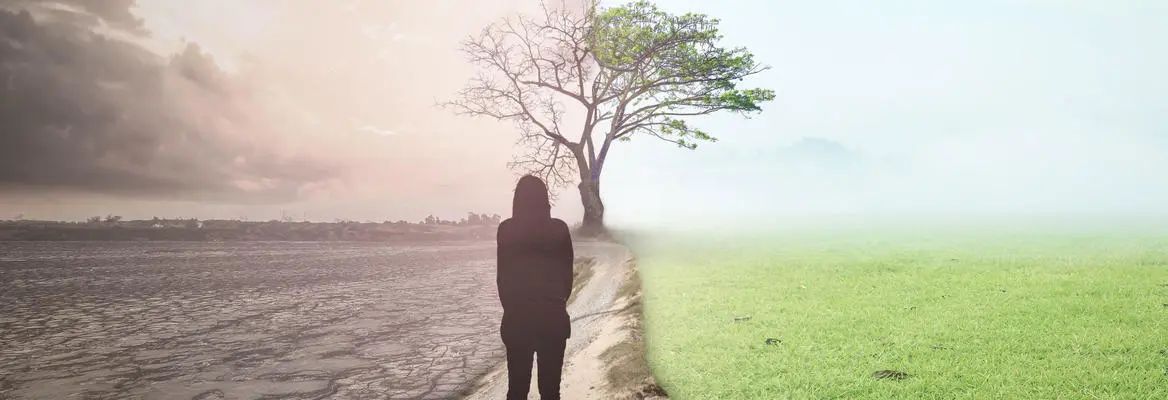Inertia is a bitch. Imagine a freight train rolling downhill or a cargo ship drifting off course; forces in motion and beyond our control. Something valuable will be lost and in many cases, there is nothing we can do that will prevent this. We feel helpless and headed for a crash.
The forces of human civilization seem like this sometimes, an unstoppable freight train. Today almost everyone strives to emulate the consumer lifestyle of an economic global elite, with increasingly dire impacts on the global environment. Historic ecosystems, in particular places, will collapse. Since many environmentalists value nature, in ecosystems and existing biodiversity, as autonomous from human interference, we are facing what Bill McKibben calls the "end of nature" in his 1989 eponymously entitled book. The Anthropocene has tremendous inertia in light of which the good of "natural" landscapes, biodiversity, and historic ecosystems, will be lost.
Is there room for environmental hope, despite near certainty that someday soon there will be no more "natural" landscapes, biodiversity, or ecosystems?
Is there room for environmental hope, despite near certainty that someday soon there will be no more "natural" landscapes, biodiversity, or ecosystems? Conventional hope, perhaps that the Anthropocene can somehow be avoided, seems naive and bordering on irrational.
Today a capitalist economy and culture of material and energy consumption seems unstoppable. To imagine how environmentalists may reconceive the virtue of hope, I want to consider one historical analogy: the westward expansion of European settlers across North America in the late nineteenth century.
Pursuing "manifest destiny," white settlers pressed into and obliterated native communities and modes of living. Let's focus on the plight of one tribe. According to Jonathan Lear, when the Apsáalooke - or, the Crow - were restricted to a reservation (established 1868) their particular way of flourishing, how they understood what it was to live well, was rendered impossible.[1]
The good life for members of the Crow was built around nomadic hunting, a warrior culture developed over hundreds of years to a life of fierce competition with other tribes for control of a shifting territory and access to buffalo.
Historically, a particular and culturally "thick" conception of courage dominated within the tribe. On the reservation, however, conditions required for behaviours that the Crow understood to be courageous simply did not exist; the Crow life form of hunting and war, in terms of which tribal members understood courage, was lost. So, Lear presents a mystery: how could the last principle chief of the Crow, Plenty Coups (1848-1932), lead courageously when the types of behaviours through which the Crow understood courage were no longer possible?
There is way to cultivate our own radical hope. But this hope depends upon our acceptance that the goodness of nature, or the intrinsic value of life on our planet, transcends a dependence on autonomy from formative human influences.
Plenty Coups had a dream vision that European colonization possessed an unstoppable inertia. He saw the impending ruination of the traditional Crow way of life was something he could not prevent. But he was not helpless. Plenty Coups's subsequent actions manifest a novel virtue of "radical hope": a form of courage in the face of despair, through commitment to the idea that the good life will re-emerge in a form that is presently unimaginable. As their leader, he was committed to a flourishing life for the Crow but one that they could not yet understand.















Join the conversation